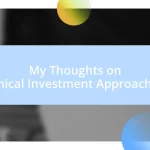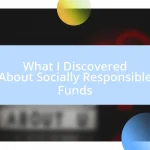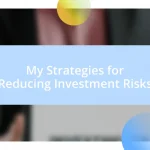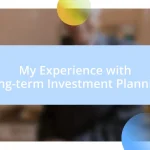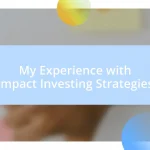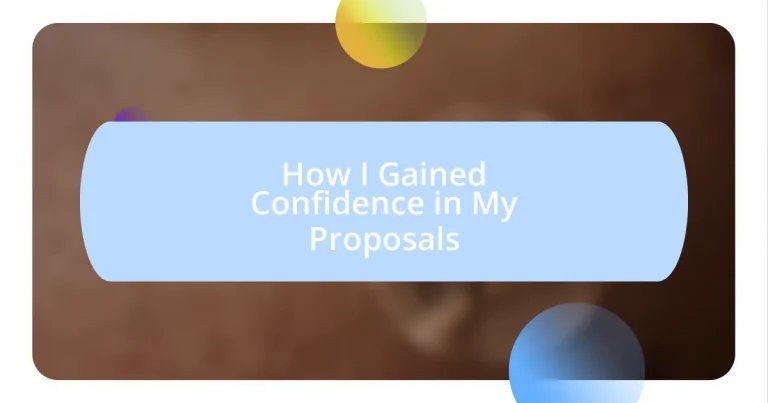Key takeaways:
- Confidence significantly enhances the effectiveness of proposal presentations, influencing both audience engagement and opportunities.
- Identifying strengths and weaknesses helps build self-awareness and boosts confidence through targeted improvements.
- Effective communication, including storytelling and active engagement, is crucial for connecting with the audience and delivering impactful proposals.
- Seeking feedback and building a supportive network are essential for continual growth and increased self-assurance in presenting ideas.
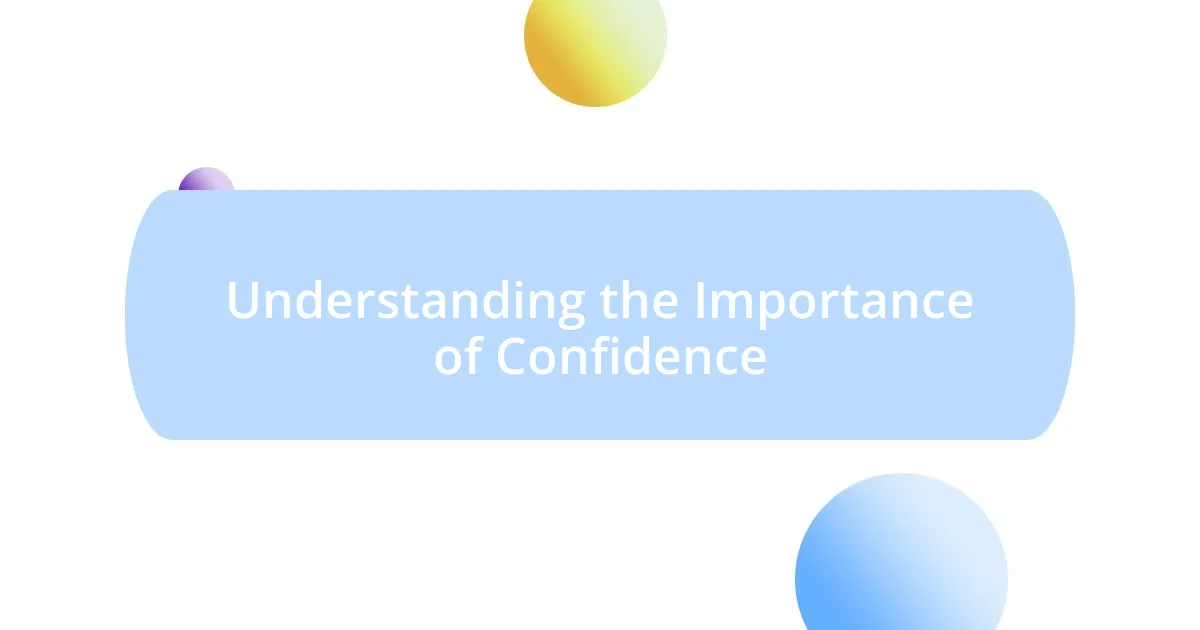
Understanding the Importance of Confidence
Confidence plays a pivotal role in how we present our ideas. I remember a time when I felt nervous delivering a proposal in front of my peers. The moment I took a deep breath and believed in my vision, everything shifted; I could see their engagement grow as I spoke.
Think about it: when you believe in yourself, it reflects in your body language and tone. I once observed a colleague who exuded self-assurance effortlessly, and it dawned on me how powerful that energy can be in persuading others. Doesn’t the thought of inspiring others with your confidence excite you?
Moreover, confidence can open doors that skills alone might not. I learned this firsthand when an ambitious proposal I made—bathed in confidence—led to an unexpected partnership. It made me realize that self-assuredness shapes not only our presentation but also the opportunities we attract. What kind of doors could your confidence unlock?
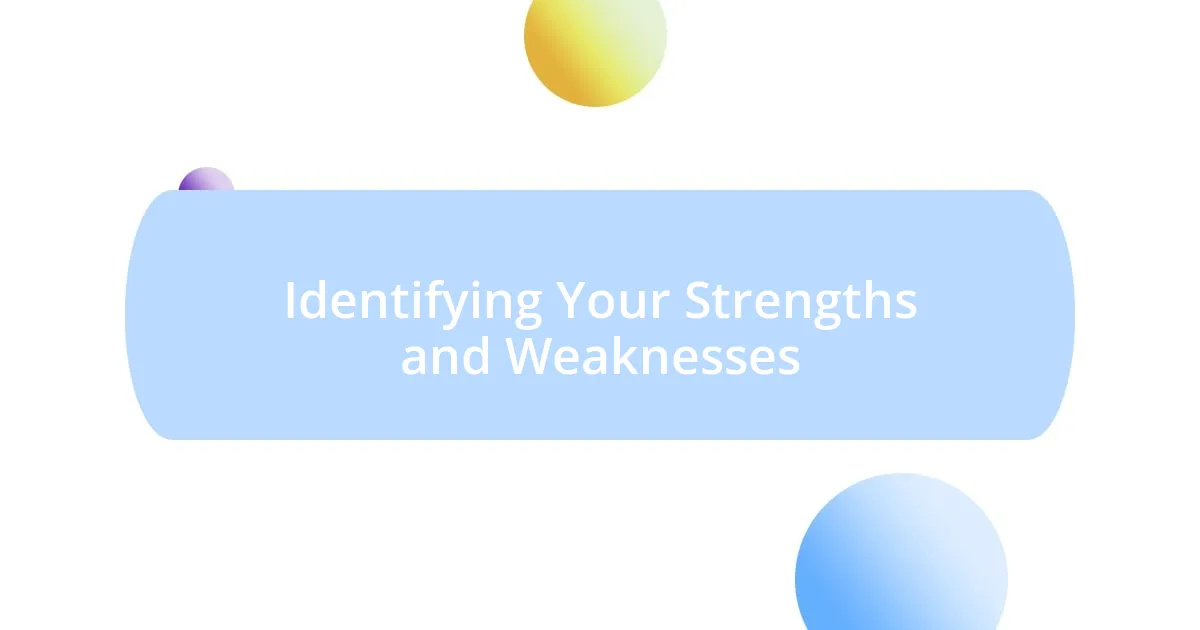
Identifying Your Strengths and Weaknesses
Identifying your strengths and weaknesses is essential for building confidence in your proposals. When I began this process, I took a deep dive into my past experiences and feedback from colleagues. I noticed that my analytical skills stood out, allowing me to present data-driven arguments effectively. However, I also recognized my hesitance in public speaking, a weakness that often overshadowed my strengths. Acknowledging both sides was the first step in my journey to confidence.
I recall sitting down with a trusted mentor, who encouraged me to brainstorm a list of my abilities. When I juxtaposed my strengths against my weaknesses, clarity emerged. It was empowering to see my ability to create engaging visuals juxtaposed with my fear of presenting them. This realization sparked a commitment to practice more, transforming weaknesses into areas for growth rather than obstacles.
Ultimately, this reflective process taught me that understanding oneself is not just about identifying qualities but also about developing strategies to enhance them. I now regularly assess my progress, which builds a stronger sense of self and, in turn, greater confidence in my proposals.
| Strengths | Weaknesses |
|---|---|
| Analytical skills | Public speaking |
| Creativity in visuals | Overthinking responses |
| Networking ability | Time management |
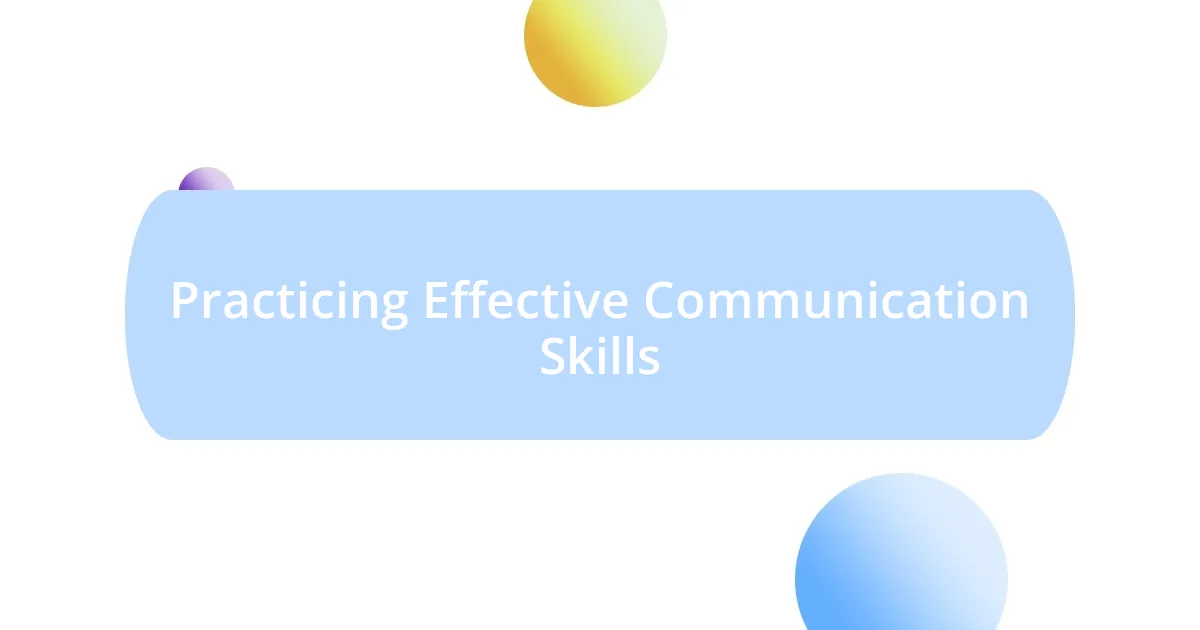
Practicing Effective Communication Skills
Effective communication skills are crucial when presenting proposals. I’ve found that simply speaking isn’t enough; it’s about truly connecting with your audience. During one presentation, I noticed how a well-placed story about a past project made the room more attentive. It was as if my words painted a vivid picture that resonated with everyone. The emotional responses I garnered confirmed how storytelling can bridge gaps and promote understanding.
Additionally, actively engaging with your audience can enhance your communication. Here are some strategies that have worked for me:
- Practice active listening: Make sure you understand their concerns by paraphrasing their questions before responding.
- Tailor your language: I’ve learned to adjust my terminology based on my audience’s expertise, ensuring they grasp the concepts fully.
- Use body language effectively: I consciously maintain eye contact and smile, which I’ve noticed makes a significant difference in how receptive my audience is.
- Invite feedback: I ask for input during my presentations. This invites discussion and shows that I value their perspective.
- Rehearse with a friend: Practicing with someone I trust not only helps identify areas for improvement but also makes me feel more at ease.
These techniques have empowered me to communicate with clarity and conviction, making each presentation a chance to grow.
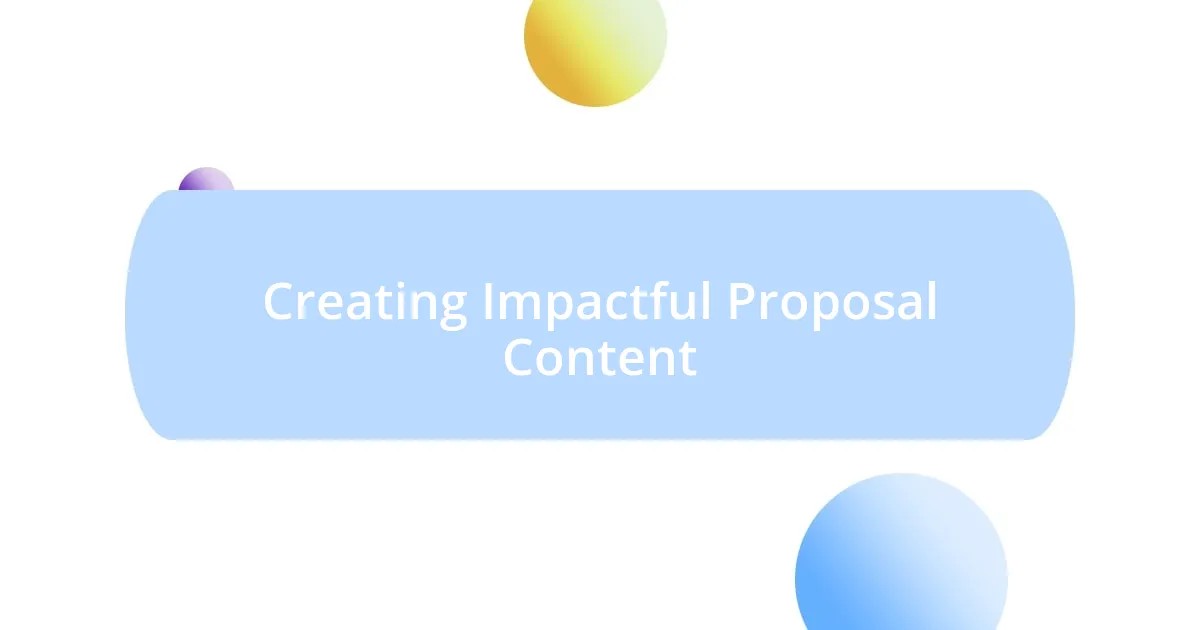
Creating Impactful Proposal Content
Creating impactful proposal content requires a blend of clarity and engagement. I remember once reshaping a proposal by using bullet points for key benefits and incorporating visuals that summarized the main ideas. It was a game-changer! The feedback I received was overwhelmingly positive, signaling that a well-organized and visually appealing document can be just as persuasive as a strong verbal presentation. Isn’t it fascinating how a simple formatting choice can make such a significant difference?
Beyond just layout, I’ve found that emotional resonance is crucial. For instance, during one proposal aimed at securing funding for a community project, I decided to include testimonials from beneficiaries. Sharing their stories added a profound layer to my presentation, allowing decision-makers to see the real impact of their support. This approach has taught me that facts alone don’t always sway opinions; people connect with stories, and tapping into that emotional connection can elevate your proposal from ordinary to unforgettable.
Finally, I emphasize the importance of a clear call to action in your content. I once concluded a proposal by clearly stating the next steps, guiding my audience on how to proceed. This eliminated ambiguity and instilled confidence in my request. When you set forth a strong, actionable plan, it not only showcases your expertise but also encourages others to take the leap with you. Have you considered how a strategic call to action might transform your proposals?
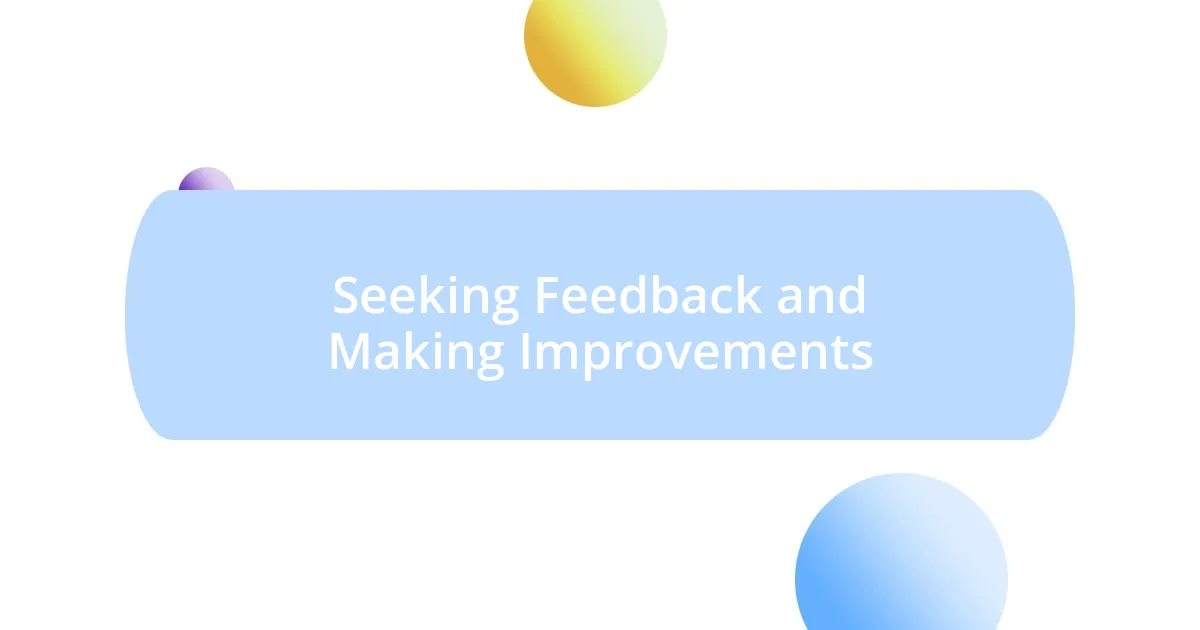
Seeking Feedback and Making Improvements
When I first started seeking feedback, it felt intimidating. I used to worry about what people might say. But I quickly learned that constructive criticism is gold. One day, after a proposal presentation, I approached a colleague who I knew was blunt. His honest feedback opened my eyes to aspects of my presentation I hadn’t considered. It was a turning point for me; I realized that their input helped sharpen my ideas and boosted my confidence.
In my journey to improve, I created a feedback loop. After each proposal, I would send a quick survey to my audience, asking what worked and what didn’t. Initially, responses trickled in, but as time went on, I noticed how eager people were to contribute their thoughts. There’s something empowering about seeing my ideas evolve through their insights; it transformed my proposals into collaborative efforts. Have you ever thought about how involvement can reshape your work? It’s like having a support team that pushes you to be better.
To put feedback into action, I started tracking recurring themes in the responses. For instance, if multiple people pointed out a lack of clarity in a specific section, I’d dive back in to rewrite it with fresh perspectives. One instance stands out where I completely restructured a proposal based on feedback about its flow. The result? A smoother presentation that garnered praise. It’s fascinating how adapting to feedback not only enhances the proposal but elevates my self-assurance as well. Isn’t it rewarding to see your efforts reflected in positive outcomes?
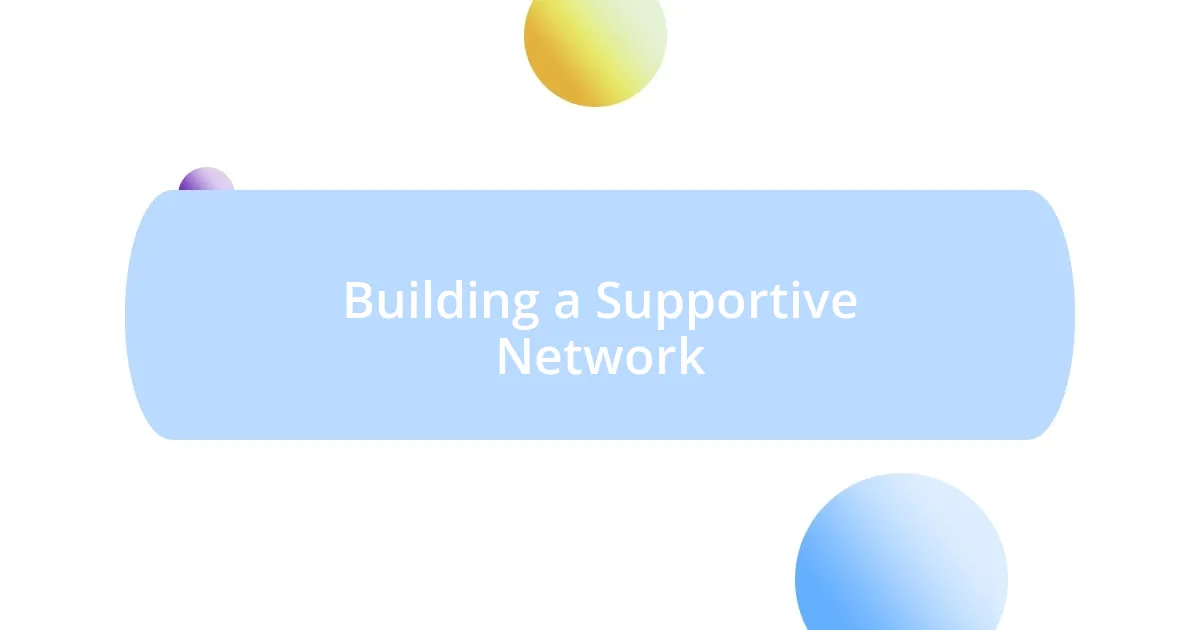
Building a Supportive Network
Building a supportive network has been instrumental in my journey towards confidence in proposals. I remember attending a networking event where I hesitated to introduce myself. But when I finally did, I connected with a mentor who not only shared insider tips but also encouraged me to take risks. That moment was a revelation; it made me realize how vital it is to surround yourself with people who uplift and inspire you.
Throughout my experiences, I have actively sought out colleagues and friends who are candid and insightful. One time, a colleague offered to review my proposal just a day before the deadline. Her suggestions were spot-on and made the document compelling. It’s incredible how having someone to collaborate with, whether for brainstorming or final touches, can boost your confidence. Don’t you find that bouncing ideas off someone can lead to unexpected breakthroughs?
The emotional support I garnered from my network often proved invaluable. After a less-than-stellar pitch, a friend reached out and reminded me of past successes. His faith in my abilities reinstated my confidence just when I needed it most. Building a supportive network isn’t just about professional growth; it’s about knowing that you have cheerleaders who believe in you and your proposals, even when self-doubt creeps in. Have you considered what role your network plays in your own journey?
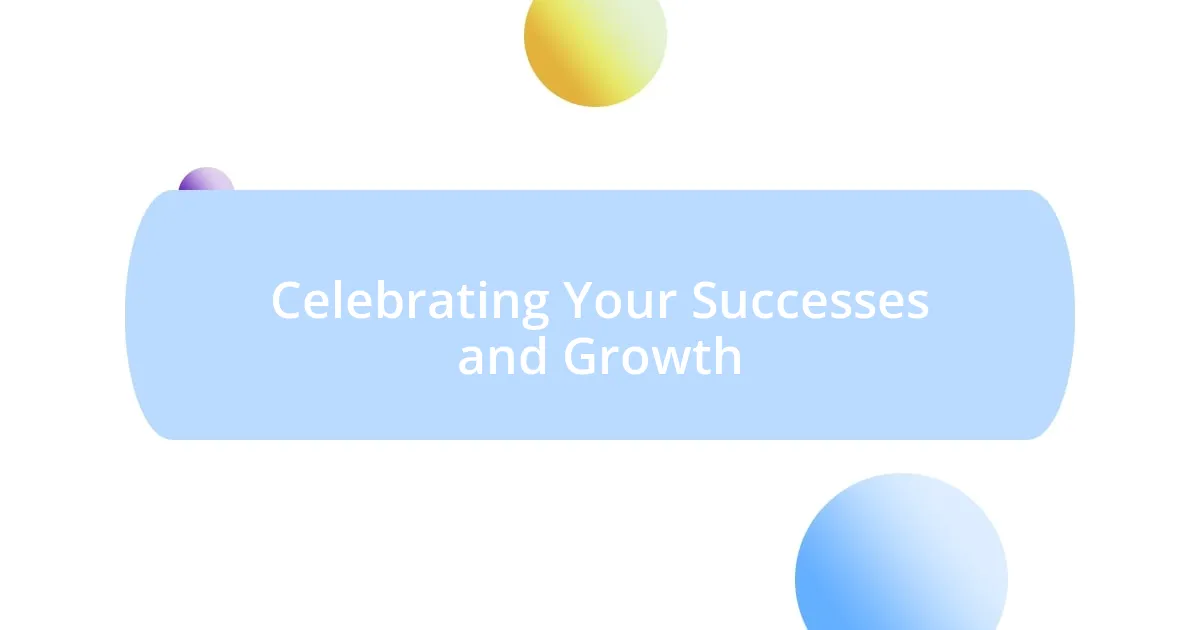
Celebrating Your Successes and Growth
Celebrating your successes and growth is not just a nice thing to do; it’s essential for fostering confidence. I vividly remember the first time I won a proposal after months of hard work. I treated myself to a small celebration – a nice dinner and a heartfelt toast to my progress. Recognizing those milestones, no matter how small, instills a sense of achievement that propels you forward.
What really struck me was how sharing my successes with my network amplified their impact. After one successful project, I shared the details in a group meeting. The enthusiastic responses and congratulations from my peers felt like a warm hug, rekindling my passion for what I do. Have you ever noticed how collective celebrations can reinforce your sense of belonging and purpose?
Reflecting on my growth has also been transformational. I often revisit a journal I kept during this journey, filled with notes on accomplishments and lessons learned. Last week, flipping through the pages, I stumbled upon a moment where I had nearly given up on a difficult proposal. Seeing how far I’ve come since then was invigorating. It made me appreciate not just the wins but also the struggles. Isn’t it fascinating how documenting our journey can be a rich source of motivation?




